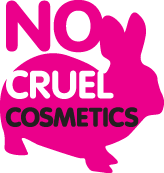Starting a new business can be both emotionally and financially rewarding. The right business allows you to fuel your passion while earning a living to create the life you want. Newer technologies and advancements in various industries have made it easier for people wanting to earn extra money or start their own companies.
To gain the advantages of having your own business, however, you have to be willing to invest from the start. Starting a business can be expensive though, so it’s important that business owners recognize this. There are a lot of different costs that can easily add up, so it might be worth using an accountant from Early Growth (check out here) for financial guidance throughout these times to make sure your business will be financially stable. Below is a brief look at some of the financial aspects of starting a new business along with solutions to covering those costs.
Registration, Licensing, and Insurance
If you plan on starting a business as a solopreneur or using your own name you aren’t required to register your business. However, for everyone else, you’ll need to register your company name and determine a business structure (i.e. sole proprietorship, partnership, Limited Liability Corporation, etc). You’ll also need to register for a tax ID number. Depending on the type of business you plan to run, you’ll also be required to obtain licensing to operate and insurance as added protection.
These startup costs can cost as much as $300 (excluding insurance which can be another couple hundred). If you don’t have the funds upfront you could look into no credit check loan options and borrow the money. Just be sure you can afford the repayment plan and repay what is owed so you don’t go into debt.
Home Office or Commercial Property
After getting your business legally registered, licensed, and insured you will need a home base. Some new entrepreneurs decide that starting off in their home is the most feasible option. Since you’re already covering the bills, there won’t be much more you’ll have to pay to operate your business.
If this is the case, however, you’ll still need to get your home office up and running. This means buying technology, office supplies, furniture, and any other equipment you need to operate your business. On the other hand, you could purchase a commercial property or rent office space. In any event, this could be several hundred to several thousand dollars a month.
To cover the cost of a home office do the best you can to use what you already have. Since most homes already have a computer, desk, and chair, skip buying those things and operate for free until you’re in a better position to upgrade things. As for a commercial property, you could consider crowdfunding which is a method where you ask online users for money to start your business. The money is yours free and clear, but you get to share your story and get the support of your community.
Supplies and Equipment
Depending on the type of business you’re starting, you’ll need to invest in supplies and operating equipment. For instance, an accounting firm requires computers, fax machines, printers, and filing cabinets, while a home-based bakery needs cooking utensils, baking dishes, and packaging containers. These initial expenses can be significant, but there are strategies to manage costs effectively.
To reduce the financial impact, consider sourcing used equipment, which is often considerably cheaper than new items. You can also generate funds by selling personal items you no longer need. For example, an old car might fetch enough to purchase a new computer, while unused jewelry could finance baking or art supplies. And if your startup involves renovation or significant cleanup, services like those offered by Temporary Dumpster (TemporaryDumpster.com) and other similar companies, can help manage waste efficiently, keeping your workspace clean without incurring high disposal fees. By combining these approaches – sourcing used equipment, selling personal items, and utilizing cost-effective services – you can outfit your startup with the necessary supplies and equipment while minimizing your initial financial outlay.
Marketing
Here’s a big financial aspect of any new business. No matter how great your product or service is, if no one is aware it exists, you’re not going to do well. So, marketing is an ongoing expense. You’ll need to create a website, develop a presence on social media, set up an eStore, create business cards, flyers, and brochures, attend networking events, and so much more.
The great thing about marketing these days is that a lot of it can be done for free. As social media platforms are free, utilize them to your advantage. In the beginning, using a free or affordable web host to create your site can work until you earn more money. Also, look for free events to attend. As for print materials, you can find great deals online to get anything from business cards to car magnets designed at an affordable rate.
This is just the tip of the iceberg when it comes to the financial aspects of starting a business, but as you can see there is a lot to cover. You can be successful and accomplish more by having a plan in place on how to earn money to cover the costs. Hopefully, this has given you some ideas you can use to start chasing your dreams.
- Overcoming Challenges in the Production of THC Seltzers - 10th May 2024
- The changes in dental marketing - 12th October 2022
- Online aligners or surgery based ones? - 12th October 2022








